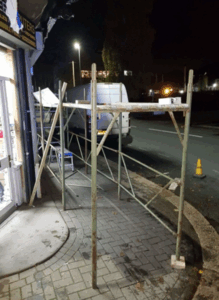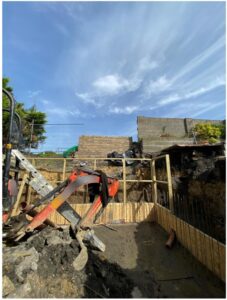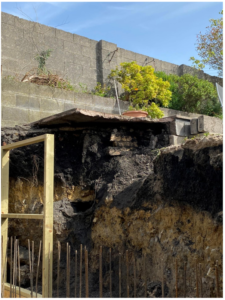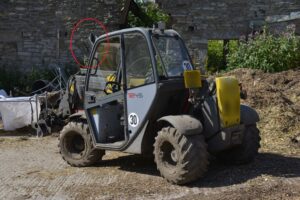Sign fitting company and director fined after fatal fall from scaffolding
- Mr Iftikhar Ahmed Mughal, 64, died four days after falling from unguarded platform.
- Fall of just six feet proved fatal due to serious head injuries.
- Inspector highlights work at height as leading cause of workplace deaths.
- HSE guidance on tower scaffold protection readily available.
A shop sign making and fitting company and its director have been fined after an employee fell from an unguarded scaffolding tower and later died from his injuries.
Mr Mughal, 64, was working for WH Metals Limited installing a metal sign to the front of the shop in Darwen, Lancashire on 22 November 2022. He was standing on the platform of a scaffolding tower without any edge protection in place, when he fell to the pavement below.
Although the height he fell from was only six feet, it was enough for him to suffer serious head injuries which resulted in him being taken to hospital by ambulance. Sadly, he died from his injuries four days later.

An investigation by the Health and Safety Executive (HSE) found that WH Metals Limited and its director, who was on site at the time of the incident, failed to prevent the risk of a fall from a distance liable to cause personal injury.
HSE guidance on working at height is available on the HSE website: Work at height – HSE. The preferred method of fall prevention on tower scaffolds is the fitting of suitable guardrails around the platform. This is a well-known and long-established control measure. If this had been in place at the time of the incident, it is highly unlikely that the worker in this case would have died.
Mr Asad Iftikar, Mr Mughal’s son, said: “My father was like a roof to the family, and since his death, I and my siblings have felt alone. He always supported us in everything we did; he would help us make all the important decisions in our lives.”
WH Metals Limited of Navigation Way, Preston, pleaded guilty to breaching Section 2(1) of the Health and Safety at Work etc Act 1974 and was fined £45,000. At Bolton Magistrates Court on 23 September 2025, the company was also ordered to pay costs of £4,826.
Mr Waqas Hanif, the company’s director, pleaded guilty to breaching Section 37 of the Health and Safety at Work etc Act 1974 and was given a 26-week custodial sentence, suspended for 12 months. He was also ordered to pay costs of £4,846.
HSE inspector David Hobbs said: “Work at height remains one of the leading causes of workplace injury and death. In this case, a fall of six feet was enough to cause a death, highlighting the dangers.
“This incident highlights the importance of suitable control measures, such as edge protection, to minimise the risk of serious personal injury.”
This HSE Prosecution was brought by enforcement lawyer Samantha Wells and paralegal officer Rebecca Withell.
Further information
- The Health and Safety Executive (HSE) is Britain’s national regulator for workplace health and safety. We are dedicated to protecting people and places, and helping everyone lead safer and healthier lives.
- More information about the legislation referred to in this case is available.
- Further details on the latest HSE news releases is available.
- Relevant guidance can be found here: Work at height – HSE.
- HSE does not pass sentences, set guidelines or collect any fines imposed. Relevant sentencing guidelines must be followed unless the court is satisfied that it would be contrary to the interests of justice to do so. The sentencing guidelines for health and safety offences can be found here.






